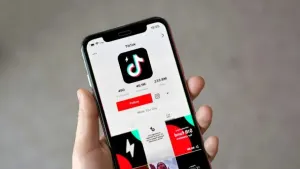In what is probably the whackiest tech news of the day, Alexa users in the UK can now turn to their Alexa smart speakers for NHS health advice.

The NHS is the UK’s state provided healthcare service. The move means that Alexa will be able to use NHS information, which has been verified by health professionals to answer health-related questions.
What does all this mean though? Are we heading into a future where the traditional doctor doesn’t exist and what about all the privacy concerns relating to smart assistants in general and Alexa specifically?

Alexa's cool new updates
Check them out nowAmazon thinks its new NHS-backed Alexa service could especially help patients who are old, blind, or who don’t otherwise have access to the internet
The new partnership between Amazon and the NHS has been spearheaded by NHSX, which is an NHS body tasked with bringing digital technology to NHS patients. The idea has been well received by the UK’s Royal College of GPs with chairwoman, professor Helen Stokes-Lampard saying, “This idea is certainly interesting and it has the potential to help some patients work out what kind of care they need before considering whether to seek face-to-face medical help, especially for minor ailments that rarely need a GP appointment, such as coughs and colds that can be safely treated at home.” Stokes-Lampard did have a number of caveats to add though.
“This needs to be the best it can be with the right information for patients” @HelenRCGP talks to @BBCNews about how voice-activated technology could support the NHS https://t.co/IhwV9pPFP5 pic.twitter.com/iHm4gvCk8O
— RCGP (@rcgp) July 10, 2019
As you’d expect from a well-respected medical body, the Royal College of GPs called for independent research to be carried out to ensure that the advice being given by the Amazon assistant is safe and correct.
If you’ve ever been told by Google that you’re going to die when you’ve searched about a minor headache, you’ll know why this is important. Over-zealous advice could end up sending more people to doctors unnecessarily.
As well as the legitimacy of the advice being offered, the other major concern is privacy. How does doctor-patient confidentiality work, if you’re discussing your health issues with a smart speaker connected to a global corporation?

There have been some worrying developments relating to Alexa recently, with it coming out that Amazon has been keeping transcripts of interactions with Alexa, even after users had deleted them. Even worse is the news that some Amazon employees have had access to these transcripts and even shared the ones they thought were interesting with their colleagues.
Alexa, who have you sold my health data to?
Matt Hancock’s NHS deal with Amazon – one of the most aggressive corporate data guzzlers – risks people being profiled & targeted based on health concerns.
It’s a data protection disaster waiting to happen.https://t.co/Pfgoa7LGua pic.twitter.com/kUauAvmvMY
— Big Brother Watch (@bbw1984) July 10, 2019
This is an issue that has already been picked up by the British privacy advocates Big Brother Watch. The organization has called the moved a data-protection disaster waiting to happen with director Silkie Carlo saying, “Encouraging the public to give their private health details to one of the most aggressive corporate data guzzlers is astonishingly misguided… This scheme will likely result in people being profiled and targeted by data brokers based on their deeply personal health concerns.” It might not just be people laughing at our private medical information, it could end up being sold just like the rest of our data too.
With healthcare being such a huge market, the big tech companies have been looking for ways in for years now. Those organizations aren’t without their fair share of health-related problems either. The UK government might have given Amazon a leg-up in its bid to establish itself as a healthcare provider that can be trusted and relied upon.
The truth of the matter, however, is that whereas this move could help relieve under pressure GPs up and down the UK, through answering questions about basic and simple medical related questions, there are plenty of concerns that need addressing before we can rely on our smart speakers to give us sound and private medical advice.


